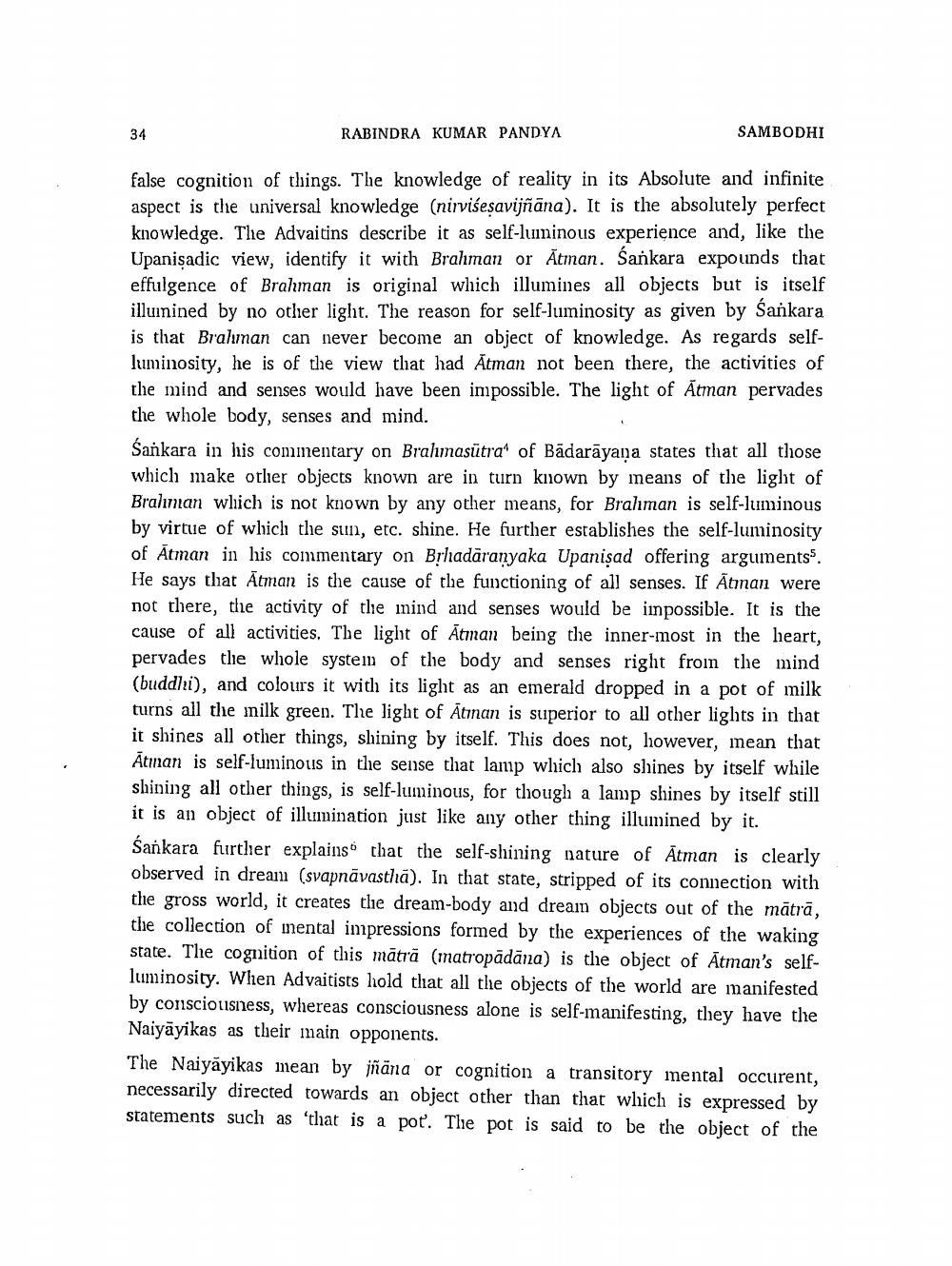________________
34
RABINDRA KUMAR PANDYA
SAMBODHI
false cognition of things. The knowledge of reality in its Absolute and infinite aspect is the universal knowledge (nirvisesavijñāna). It is the absolutely perfect knowledge. The Advaitins describe it as self-luininous experience and, like the Upanişadic view, identify it with Brahman or Ātman. Sankara expounds that effulgence of Brahman is original which illumines all objects but is itself illuinined by no other light. The reason for self-luminosity as given by Sankara is that Bralıman can never become an object of knowledge. As regards selfluminosity, he is of the view that had Ātman not been there, the activities of the mind and senses would have been impossible. The light of Ātman pervades the whole body, senses and mind. Sankara in his commentary on Brahmasutra" of Bādarāyana states that all those which make other objects known are in turn known by means of the light of Bralıman which is not known by any other means, for Bralıman is self-luminous by virtue of which the sun, etc. shine. He further establishes the self-luminosity of Ātman in his commentary on Brhadāranyaka Upanişad offering argumentss. He says that Ātman is the cause of the functioning of all senses. If Ātman were not there, the activity of the mind and senses would be impossible. It is the cause of all activities. The light of Ātman being the inner-most in the heart, pervades the whole system of the body and senses right froin the mind (buddhi), and colours it with its light as an emerald dropped in a pot of milk turns all the milk green. The light of Ātman is superior to all other lights in that it shines all other things, shining by itself. This does not, however, mean that Atman is self-luminous in the sense that lamp which also shines by itself while shining all other things, is self-luminous, for though a lamp shines by itself still it is an object of illumination just like any other thing illumined by it. Sankara further explains that the self-shining nature of Atman is clearly observed in dream (svapnāvasthā). In that state, stripped of its connection with the gross world, it creates the dream-body and dream objects out of the mātrā, the collection of mental impressions formed by the experiences of the waking state. The cognition of this mātrā (matropādāna) is the object of Ātman's selfluminosity. When Advaitists hold that all the objects of the world are manifested by consciousness, whereas consciousness alone is self-manifesting, they have the Naiyāyikas as their main opponents. The Naiyāyikas mean by jñāna or cognition a transitory mental occurent, necessarily directed towards an object other than that which is expressed by statements such as 'that is a poť. The pot is said to be the object of the




